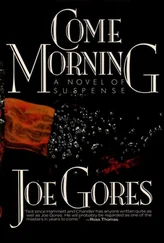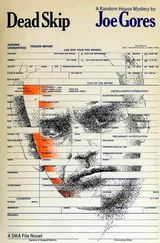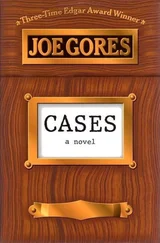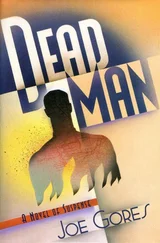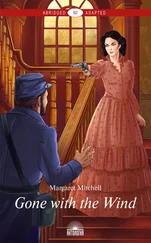“Yeah. Delaney suckered us into making a payment which he now claims is an admission of guilt because we made it.”
Tranquillini said, “We wish the record to reflect, Your Honor, that Respondent acted under advice of counsel. Respondent was not competent to understand the legal ramifications such payments might entail.” He turned to Delaney and said, very distinctly, “You shouldn’t have done that, boyo.”
“What was that?” demanded the astounded Hearing Officer.
But Tranquillini had sat down. After staring at him hard for several seconds, the Hearing Officer turned to Delaney. “Proceed with your presentation, Mr. Delaney.”
“Your Honor, the State feels that these payments have altered the circumstances of this case, and that judgment should be rendered against Respondent Corporation at this time.”
“Is that a motion?”
“Yes, Your Honor.”
“Noted and denied. Proceed.”
The State’s first witness was Norbert Franks. He was sworn and qualified as an attorney. Tranquillini stipulated to his qualifications and Delaney started his presentation. “Now, I understand that you filed an action against Daniel Kearny Associates on behalf of Kasimir Pivarski. What was the nature of that action?”
“Preliminarily, to resolve whether a Complaint filed by Daniel Kearny was a valid Complaint. Secondarily, to prevent further attachment of Mr. Pivarski’s wages. Finally, to endeavor to recover certain monies received by Daniel Kearny from Mr. Pivarski.”
“I see. Previous to the attachment of Mr. Pivarski’s wages by the Respondent, had he come to your office?”
“He had.”
“And what was the purpose of his visit?”
“He wanted our office to examine the documents that were filed against him by Daniel Kearny, to see what recourse could be had. I determined that a demurrer to the Complaint would apply, and therefore filed one.”
Delaney was pacing, nodding as if given great enlightenment. “Yes. I see. I see.” He stopped abruptly. “And did you tell Mr. Pivarski that he had a meritorious defense against Daniel Kearny?”
“Objection.”
Delaney looked at Tranquillini with apparently genuine surprise. “ Objection ?” His voice made the word unthinkable.
“Of course the witness is going to advise his client that the suit he plans to file is a meritorious one. That doesn’t make it so.”
“Mr. Hearing Officer,” said Delaney in a pained voice, “I wish to draw from this witness what he advised his client to do just before that client went to Kearny’s office. This will bear directly on what Mr. Pivarski had in mind when he talked with the Respondent.”
“An attorney has a conversation with his client,” said Tranquillini, “and after the conversation the client goes somewhere and does something. What is important is what he did, not what his attorney told him to do. I think my objection is good.”
The Hearing Officer said coldly, “You will proceed, Mr. Delaney. There is no question pending.”
Tranquillini shrugged and sat down. Delaney went on. “Do you recall the date that conversation with Mr. Pivarski took place?”
“There were two or three conversations preliminarily. In the initial interview, my client told me—”
“I will object to any conversation that has no direct bearing upon the actual crux of this case.”
The Hearing Officer said, “Mr. Franks, please limit your answer to any conversations between yourself and Mr. Pivarski just prior to his visit to Respondent’s office.”
“Well, of course, that visit took place on November fifth of last year. But the demurrer to the Kearny complaint had been filed on October eighteenth, and on November twelfth that demurrer was sustained without leave to amend because opposing counsel did not appear. I notified...”
He paused because Tranquillini had suddenly leaned forward to begin a furious scribbling of notes. Franks shot a look at Delaney for support, who said in a syrupy voice, “November fifth only, Mr. Franks.”
Tranquillini was still scribbling. When he finally straightened up, the Hearing Officer looked at the watch laid out on the bench, and called the noon recess.
It was not a buoyant lunch, even though the Rathskeller’s knockwurst and sauerkraut and steins of rich heavy dark beer were up to the usual standard. One trouble was Tranquillini: he was so sore he could hardly eat. “Oh, I imagine that zinger Delaney tried about our payment to Pivarski originated with Greenly up at the Licensing Bureau,” he said. “But I’m still going to bum his butt for it.”
“Did he really think he could make it stick?” asked Giselle.
“I doubt it. Even if DKA admitted outright that they owed Pivarski the money, that would not be an admission of any impropriety. I imagine he hoped to influence the Hearing Officer’s mind subconsciously against us.”
“That explains Delaney,” said Kearny. “But why would Greenly suggest it in the first place?”
“Padilla Drayage?” O’Bannon, slaking his usual massive thirst, was on his third stein of beer to everyone else’s first.
“The thought has to cross your mind,” said Tranquillini.
“No,” said Kearny around a mouthful of potato pancake. “The big boys from the East who are behind Padilla Drayage owe me, personally, a favor. A big one.”
“Such as?”
He looked at the others and sighed. It was time. “Remember the Chandra case a couple of years back?”
Tranquillini spooned dark mustard onto his plate. “I wasn’t your attorney then, but sure, I recall it.”
“A guy named Phil Fazzino, the local Mafia honcho, had killed his own superior to take his place, and then killed an old dance teacher named Chandra because she overheard the hit being planned.”
“Frank Padilla was who got it.” Heslip added almost dreamily, “Remember that scam we ran on his widow, Giselle?”
“Black is diz-guz-ting,” she said.
“But there wasn’t any proof Fazzino had hit Chandra,” said Kearny. “Nothing a cop could use to convince a D.A. or a D.A. could use to convict in front of a jury.”
“So Fazzino went free,” said Giselle in a bitter voice. “Only he didn’t.” The tone of Kearny’s voice told them what he meant. “Yeah. I pulled the plug on Fazzino and his wife Wendy to the mob. Told their local attorney, Wayne Hawkley, all about it. They didn’t need proof. Whether they ever caught up with Fazzino...”
“They owe you,” Tranquillini agreed crisply. “No wonder you accepted that Hawkley wasn’t behind the State’s move.”
“Yet it’s his nephew — a member of his law firm — who’s nailing our tails to the wall of that hearing room.”
Tranquillini gave his sudden cocky laugh. “All the odds haven’t been posted on that race yet.”
“You mean we aren’t doing as bad as I think we’re doing?” asked Giselle. “This afternoon they’ll bring up that letter, and—”
“And we can’t stop them.” lamented O’Bannon from behind his fifth tankard of strong waters.
“We don’t plan to stop them,” said Tranquillini. He looked at his watch and got to his feet. “We let them get it in as hearsay.”
They started up the stairs toward the street level.
“I guess I’m dumb,” said Heslip, “but even as hearsay, isn’t that going to hurt us?”
“Sure. But we can’t keep it out. And we have a hearsay of our own that they won’t be able to keep out once theirs is in.”
“Simson’s deposition?”
As Tranquillini nodded, the headwaiter called after them, “Phone call for you. Mr. Kearny. A Mr. Ballard.”
“Now you’re talking!” exclaimed Tranquillini. “Get me an eyeball from our side of the fence to back up Simson’s deposition, and if they try what I think they will with that letter, we’ll knock them right out of the park.”
Читать дальше
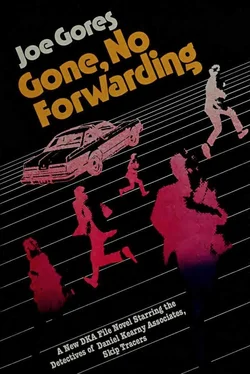


![Эрик Рассел - Подарок дядюшки Джо [=Подарок от Джо] (ёфицировано)](/books/65161/erik-rassel-podarok-dyadyushki-dzho-podarok-ot-dzho-thumb.webp)



